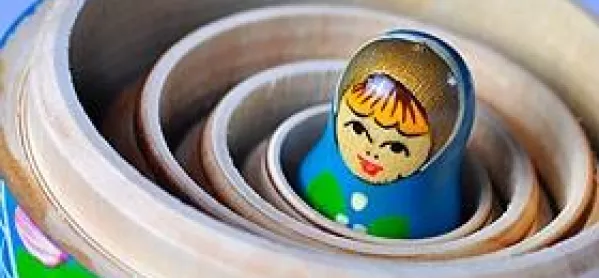Nurturing a nation of number crunchers

First it was Sweden, then the US and now Michael Gove is looking east for his latest inspiration on free schools. The education secretary is considering basing his first wave of specialist maths free schools on the little-known Kolmogorov Physics and Mathematics School in Moscow, Russia.
The government announced in its Autumn Statement last year that it would be opening 16 specialist maths schools for 16- to 18-year-olds across the country over the next three years.
The chancellor, George Osborne, said that the new schools would aim to “give our most talented young mathematicians the chance to flourish” and “produce more of the engineering and science graduates so important for our longer term success”.
TES understands that officials within the Department for Education are now keen to establish the schools on the model of Kolmogorov, a boarding school that selects the brightest mathematicians in Russia.
The school, which was founded by Russian mathematician Andrei Kolmogorov, is part of Moscow State University, meaning that pupils are taught by professors and research assistants from the university’s mathematics department. Students usually join at the age of 15, opting to specialise in maths or physics, but some can be as young as 13 when they start.
According to Alex Gammerman, a Russian professor in computer science at Royal Holloway, University of London, and chair of the University of London’s Kolmogorov Lecture Committee, the Moscow school has been hugely successful in producing top mathematicians. “The school maintains an excellent level of mathematics and it selects the best young mathematicians in Russia,” Professor Gammerman said. “The children are doing maths almost 24 hours a day because there is the competitive edge of trying to outdo one another.
“There is no doubt that Britain needs schools like it, but it does have some negative effects,” he added. “For instance, when the students get to university they tend to find the first two years very boring, as they know it all already, and many end up dropping out.”
Maths is seen as a “fundamental strategic priority” by the British government, which wants the 16-18 schools to produce a new generation of mathematicians able to establish innovative companies in the UK. The DfE has hosted a consultation meeting on the new free schools with interested parties from the mathematical community in order to outline its plans.
Professor Alexandre Borovik, an expert on selective maths schools who teaches at the University of Manchester, attended the meeting and was encouraged by the government’s plans.
“So far, it has been only independent schools that have been able to produce mathematicians on anything like a similar scale, but there has been nothing like it in the state sector,” Professor Borovik said. “To see whether it can be done, you really have to be very selective and go down the route of what was successful in Eastern Europe and Russia.
“Schools like Kolmogorov are incredibly selective, but it’s important not to call them `elite schools’; they are simply schools for young people who are interested in mathematics.”
Just one concrete proposal has been put forward so far, for a specialist maths free school backed by Ormiston Victory Academy in Norwich. Sir Isaac Newton Free School will address the low take-up of maths and sciences among sixth-form students.
“While the school will not be looking for just the top 1 per cent, it will require A* to A grades to be considered,” said Ormiston Victory Academy principal Rachel de Souza. “We want it to act as a hub for Norfolk, offering CPD to teachers and enabling students to have the best teaching from the world of industry and research.”
ONE MAN’S VISION Born in 1903, Andrei Kolmogorov was a Soviet mathematician, pre-eminent during the 20th century, who advanced various scientific fields such as probability theory, classical mechanics and computational complexity. It was not until 1963 that he established his school for gifted students. The boarding school focused on pupils with talents in maths and physics, while also teaching a broader curriculum, including literature, the sciences, humanities and sports. According to the school, 85 per cent of its students go on to study at Moscow State University, while the remaining 15 per cent study at some of the world’s leading institutions, such as the Massachusetts Institute of Technology, the University of Oxford and the University of Cambridge. Kolmogorov died in October 1987.
Keep reading for just £1 per month
You've reached your limit of free articles this month. Subscribe for £1 per month for three months and get:
- Unlimited access to all Tes magazine content
- Exclusive subscriber-only stories
- Award-winning email newsletters



